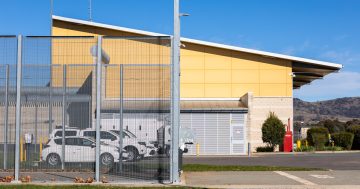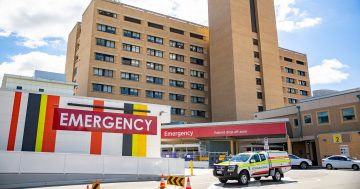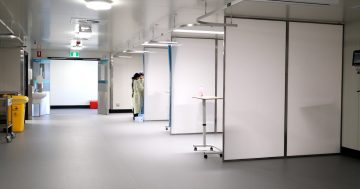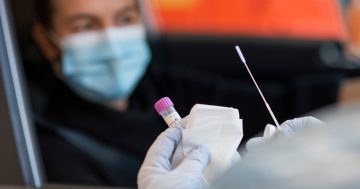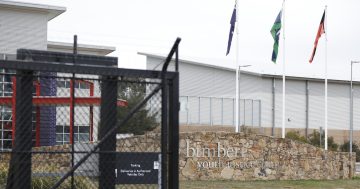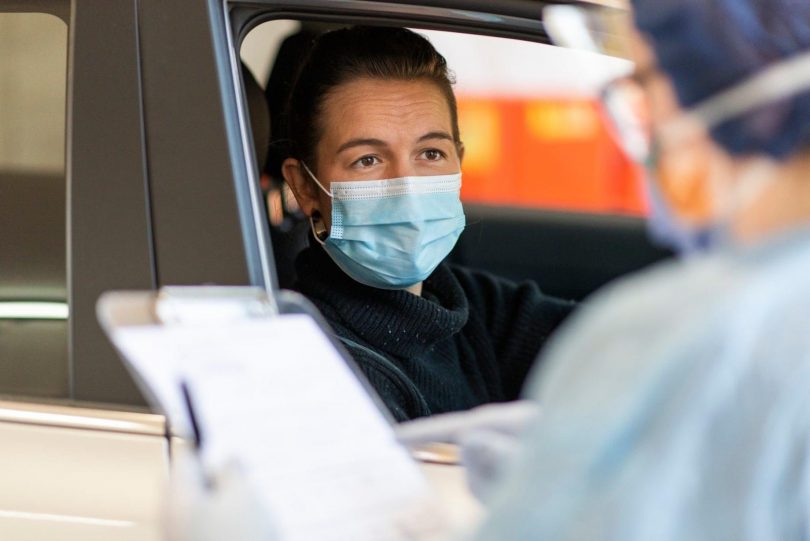
The face of the pandemic: the quarantine system is about to be really tested. Photo: ACT Health.
Let us hope that the short, sharp lockdown in South Australia will do its job and prevent a Victoria-like disaster there but the new COVID-19 outbreak only highlights the risky nature of the hotel quarantine system in the nation’s capitals.
Acting Commonwealth Chief Medical Officer Paul Kelly acknowledged this when he announced mandatory weekly testing for hotel staff, although why this was not a part of the regime is mystifying.
Similar to but not identical to the Victorian outbreak, the COVID-19 cluster erupted in South Australia when a hotel staff member contracted the virus, probably from surface contact, and took it home.
So close to Christmas, the cluster has evoked fear and dismay after it appeared Australia had gotten on top of the virus and the nation could return to a degree of normality.
But is it wise to continue to allow repatriated Australians from COVID-19 hotspots such as India and the UK to quarantine in hotels in the heart of our big population centres?
Canberra is doing its bit by taking two planeloads of returnees before Christmas, although the details are as yet unknown, and ACT Health is assuring us that all appropriate measures will be taken to avoid any transmission and the virus escaping into the community.
It’s a risk we have successfully managed before, and according to Federal Health Minister Greg Hunt it’s a risk that can continue to be managed as inevitably the odd cluster emerges.
But experts say the quarantine system is about to be really tested as the Federal Government increases the number of people being allowed home.
UNSW epidemiologist Mary-Louise McLaws says Australia needs purpose-built facilities not hotels where untrained staff can so easily let their guard down.
They also need to be outside big population centres, particularly Sydney and Melbourne, although Victoria is not taking any returnees as yet.
She points to sites such as the former workers’ camp of Howard Springs, which sits 25 km from Darwin.
There are also the detention centres, conveniently located in isolated locations, that could be redeemed by being converted for a much better use.
“If the numbers of positive return travellers become so high, without a purpose-built environment, without really good airflow change, without high-level trained staff, there will be a spillover and it will go into the community,” Professor McLaws said.
“Hotel quarantine was a reasonable interim solution to bring Australians back safely but it’s now been nine months since the public health emergency was called.”
Australia has used its advantage as an island well to avoid the nightmare unfolding around the world and should press that advantage by containing any potential virus threat from overseas in the kinds of isolated, purpose-built facilities, Professor McLaws has suggested.
Bringing Australians back from countries where the virus is out of control, confined to an aeroplane and then transporting them to city centres to be housed in a multi-storey building that needs to be serviced by ill-equipped staff and security who return to their community every day is simply asking for trouble.
The cost in lives and economic carnage from more breakouts and successive waves of COVID-19 is too awful to contemplate.












